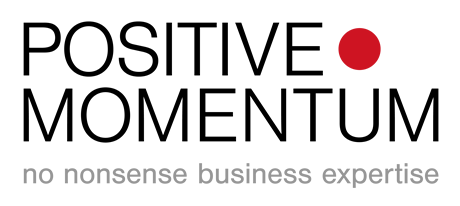Photo 224629158 © Diego Grandi | Dreamstime.com
I’ve been doing some work with clients recently to help them articulate a particular narrative that they’re looking to get across to an audience – be it investors, colleagues, or even customers. Something which has jumped out at me over the last few weeks is the importance of the language we use to communicate a message..
So here are five really simple tips to make sure that your message is as clear as possible and that your business story lands with the impact it deserves.
1. Keep it simple
The first is really simple. Just keep it simple. Why make anything more complicated than it needs to be? There is an elegance in simplicity, and while an idea might be very sophisticated, it’s important to be able to express it simply. You want people to understand it quickly and easily. In my former life in the news it was well known that it was far more difficult to write a short headline than a long one, and there is the well known adage, first attributed to the French mathematician Blaise Pascal, who apologised for the length of a letter because he didn’t have the time to write one shorter.
So there are three key reasons for keeping it simple:
- You want your audience to grasp what you’re saying quickly and entirely.
- Be respectful of the time and brainpower you’re asking your audience to give you. Make it easy for them.
- It’s a mark of the quality of thinking behind your idea in the first place to be able to express it simply.
I recommend trying out your narrative on other people before you commit to it. Make sure they’re not too close to the subject. My wife is one of my favourite sounding boards – the perfect blend of intelligence, challenge and allergy to jargon.
I worked on an investor deck recently for a business with a great idea, but the founders were not getting the traction they expected. It was because the presentation was too long and complicated. It reminded me of Shakespeare’s Queen Gertrude’s line in Hamlet,
“The lady doth protest too much” – she was remarking on the performance of a queen character in a play within the play. Gertrude is saying that the character is trying too hard to convince her audience, and thereby loses credibility.
2. Nourish your audience
I use the word ‘nourish’ here very deliberately. It’s not just about feeding your audience with what you think they want to hear – it’s actually about knowing what they need to hear and giving them that information.
Different audiences need to hear different messages:
Investors want to know that putting money into your business will enable it to grow and deliver them the return you are all looking for.
Customers want to know why your service or product is going to solve their problem or challenge better than any other.
Colleagues want to know where they fit in the strategy and direction of the company and how they can make it, and themselves, more successful.
Your language needs to adapt to the audience. When you talk to CEOs, like we do on our Meet the CEO podcast, they express big ideas in simple language, and that’s because their minds are already full with 101+ things to do with running their business, they don’t need to complicate their lives further with complicated language.
When you talk to a tier or two below the CEO, however, they sometimes have a tendency to inhabit a world of jargon which gives the impression that what they’re doing is incredibly sophisticated and difficult to understand – it also seems like the language they use is a signal to peers that they are part of the same club.
3. Avoid Jargon
There is a big difference between specialised terminology – words to describe concepts which are very specific to a sector or industry – and plain jargon. Instead of clarifying, jargon actually obfuscates ideas and concepts. Acronyms, for example may be intended to be a more efficient way of expressing a term, but in fact they end up cloaking the concept in an unnecessary layer of obfuscation which you end up having to explain in itself. Plenty of words have crept into business parlance, the likes of which are the subject of several articles around the web, but it’s worth calling out a few that I’ve come across in the last few months:
‘Leverage’: used as a verb when in fact there is a noun – for example “leverage real estate solutions” why not just say “use the space”?
‘Responsibility for successful operability of X’: why not say “making sure X works smoothly”?
‘Align’: overused in examples like “align with the client’s requirements” – why not just say “meet the client’s needs?”
‘Metric’: used as a verb! It’s a bastardisation of a noun into a verb – why not just say “measure”?
‘One of the critical success factors is X’: surely much better to say “if we are to be successful we’ve got to do X”?
4. Use real life examples
It’s important to use real life examples of the ideas you are trying to express in order to bring them to life. In the same way that a design sketch or a product prototype moves forward someone’s understanding of a concept or idea, an illustration of an idea with a real life example immediately advances your audience’s understanding, and they can immediately see what you mean, because you eliminate ambiguity.
After all, businesses aren’t theoretical – they are real solutions to real life challenges, so much better to talk about those real life solutions and challenges instead of a theoretical abstraction of them. This is a key part of storytelling – involving characters who do things – and its why stories are so engaging – because your audience can put themselves in the shoes of those characters helping them understand the perspectives points of view at play.
5. Be yourself!
We humans crave character and personality. Investors want to feel the personality and the values of the brand and its founders; team members want to know that their leaders are human – they want to know their hopes and fears and what makes them tick; and customers connect far better to a business with a personality. Use that to your advantage and don’t try to be someone that you’re not, because:
- you won’t be able to keep up the facade,
- your audience will see through it anyway,
- you won’t make the same quality of connection than if you just played your natural game.
Deals at all levels the world over happen between people, and are based on the quality of a relationship between those people – whether it’s founders and investors, a business and its customers, or a leader and her team. By paying attention to the language you use you can influence the quality and ultimately the success of that relationship.








